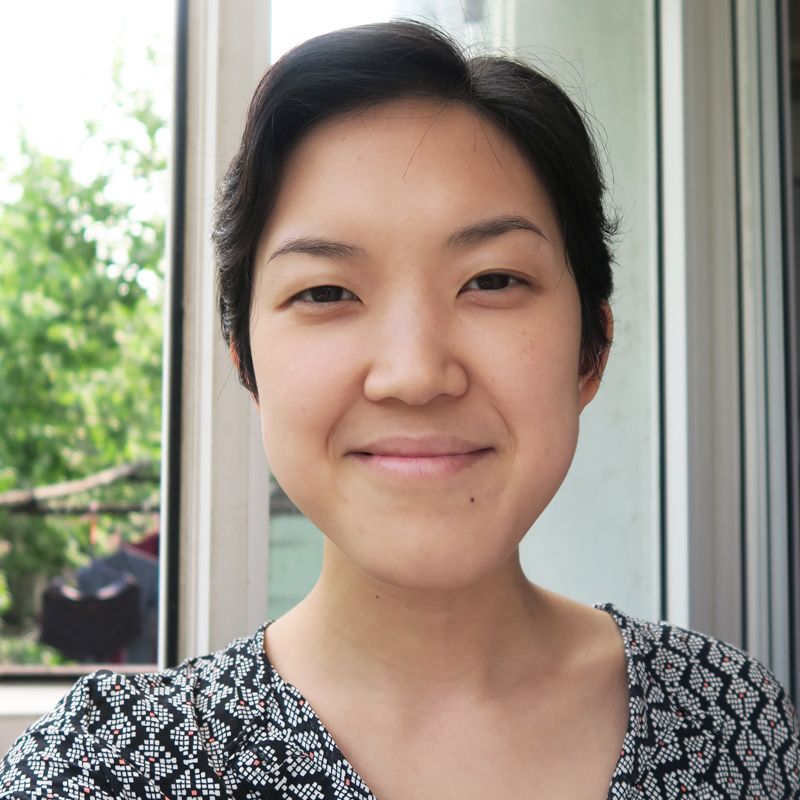Tencent and QQ with Eva Xiao

Eva Xiao from Technode joined us for a two parter discussion on one of the BAT companies: Tencent. We dived deep into the holding company behind the two successful messaging apps in China: QQ & Wechat. In this first part of 2 episode arc, we discussed the vision, mission & corporate structure of Tencent, how the company build up their business structures and revenue streams, and the state of QQ, their desktop messaging app and its relevance to the Tencent’s portfolio today.
Here are the interesting show notes and links to the discussion (with time-stamps included):
- Eva Xiao, Reporter at Technode.com (@evawxiao, LinkedIn, Wechat: evawxiao , Technode)
- How did she start in journalism? [1:00]
- What brought Eva from US to China? [1:36]
- What are her areas of coverage in Technode? [3:09]
- Tencent (Wikipedia, Bloomberg, Investor Intro deck), Founded in 1998. Revenue in 2015: 102.9B RMB ~ 15.9B USD, EBITA: , Market cap: 1.4T HKD ~ US$200B compare to Facebook with US$340B. Listed in HK Stock Exchange with two significant owners: MIH Group under Naspers from South Africa 35.1% and Pony Ma 9.1%. Reference: Tencent 2015 Annual Report [3:28]
- What is the vision and mission of Tencent? [4:08]
- “using technology to enrich the lives of Internet users”
- Connect and content – ‘online lifestyle’ strategy
- Martin Lau: “At the heart of Tencent is actually a social company.” (Talk at Stanford Graduate School of Business)
- Tencent is building an ecosystem of mobile services: payment, O2O, e-commerce, communication, entertainment (movies, gaming, digital content, VR), banking, social networking
- Who are the key executives of Tencent? [5:30]
- Founder: Pony Ma
- Martin Lau, President of Tencent, also a Goldman Sachs alumnus.
- Pony Ma is often described as reclusive and shy (as is Zhang Xiaolong). He’s done a good job of covering his own weaknesses with his ex-investment banking management staff.
- In many ways, the public face and voice of Tencent to the outside world (interviews, videos)
- James Mitchell, Senior Executive Vice President – Strategy.
- David Wallerstein, CXO, based in Palo Alto, in charge of international expansion.
- Allen Zhang Xiaolong, President of Weixin (WeChat) Group, created Foxmail, manages product and team for WeChat, QQ mail
- Sy Lau, Senior Executive Vice President of Tencent and President of its Online Media Group, ~20 years of advertising experience, Malaysian-born
- Won the Cannes Lions Media Person of the Year Award in 2015
- What is the culture like in Tencent? Is it run more like a traditional chinese company or western company? [9:18]
- Mix of both. There are signs of more “Western”-style management from Zhihu, such as free meals, “afternoon tea” service, which is comparable to Silicon Valley companies. But career growth is rumored to be difficult, especially since departments are very separate and tasks/responsibilities are narrow. Compared to Alibaba, Tencent’s working culture is more corporate (anecdotal)
- What are the current businesses that is driving the business growth of Tencent? [11:29]
- Social networking platforms: Wechat(includes WeChat Wallet), and QZone (SNS, blogging)
- Online games: distribution for mobile and PC games, advertising for games, investments in gaming companies (Riot Games, Epic Games, etc.)
- Media content: partnerships with Disney (Star Wars), HBO (Game of Thrones), Warner Music, NBA, Paramount, Sony music, ESPN (QQ Sports, live broadcasting), QQ.com news portal (advertising).
- What are the core products and value added services of Tencent and the value added services that are driving their revenues? [13:30]
- Value-Added Services (78% of Tencent’s revenue in 2015)
- “Tencent is great at monetizing eyeballs,” says Jeff Walters, partner and managing director in the Boston Consulting Group’s Beijing office. “That’s their core competency. They are making tons of money by scraping together pennies, from tiny transactions.” (Fast Company profile of Tencent). **This is a big theme in Tencent’s business narrative. [14:04]
- VIP membership [14:15]
- QQ has its own currency system using Q点 (dian) , where one Q点 = .1 RMB, and Q币 (Q coin), where one Q币 = 1 RMB
- 8 tier membership system where ascending to a higher level requires a certain amount of credits
- Pyramid structure: VIP1 to VIP2 requires 600 credits, VIP2 to VIP3 requires 1800 credits, VIP3 to VIP4 requires 3600
- Makes upper levels more exclusive, also guarantees that users do not move through levels too quickly
- Depending on your VIP level, you earn a certain number of credits per everyday
- Ex: VIP1 users can 5 credits a day, which means it takes 120 credits to ascend to VIP2 (which requires 600 credits)
- If they pay for 1 year of membership (~120 RMB) using WeChat Wallet, they receive 15 credits a day, but if they pay by month through WeChat Wallet, they only receive 11 credits a day
- Pyramid structure: VIP1 to VIP2 requires 600 credits, VIP2 to VIP3 requires 1800 credits, VIP3 to VIP4 requires 3600
- Examples of benefits: size of your QQ mail inbox (3, 4, 5, 6, 7, 8G), the size of files you can download (10, 20…70G), how many people you can have in a chat group (500, 1000, 2000), special events (win special items for a game, discounts to Meituan-Dianping, which Tencent has a 20% stake in)
- Freemium model: Small digital purchases add up [16:18]
- QQ Games: buying extra lives, special weapons
- QQ Show: buying digital clothing, backgrounds
- QQ: benefits like ad-free, background music,
- Advertising (17% of Tencent’s revenue in 2015) [17:13]
- QQ.com (news site)
- Tencent Video
- QQ Games (pop-up ads)
- QQ messaging platform (in-feed ads)
- QQ
- Tencent’s first product as an instant messaging app on desktop and found the business model to monetize successfully against MSN, Yahoo! And Skype. What is the current relevance to Tencent’s business bottom line? [18:15]
- Appeal to a younger audience
- Used by some companies for internal/external communication (with colleagues, business partners)
- Entertainment portal: links to QQ Games, Qzone, QQ Music, QQ Show, all of which drive revenue at Tencent
- For QQ mobile, 642M smartphone monthly active users increase by 11% and QQ instant messaging 853.1M monthly active users. [19:25]
- What are the value added services that are driving QQ’s growth? [19:47]
- Covered above.
- Mobile gaming (ex: special weapons can be bought, extra lives)
- VIP subscriptions (personalized chat rooms, background music, ad-free, etc.)
- Tencent’s first product as an instant messaging app on desktop and found the business model to monetize successfully against MSN, Yahoo! And Skype. What is the current relevance to Tencent’s business bottom line? [18:15]
- Value-Added Services (78% of Tencent’s revenue in 2015)
- What is the vision and mission of Tencent? [4:08]
Podcast Information:
- Feed
- iTunes
- Google Play
- SoundCloud
- Product Hunt
- Quibb
- Google+
- Stitcher
- Acast
The show is hosted by Bernard Leong (@bleongcw) and are sponsored by Ideal Workspace (Twitter, Facebook and LinkedIn) with their new Aspirus Desk on Indiegogo (Twitter, Facebook, Medium). Also check out Ideal Workspace’s new standing desk, Aspirus and sign up for their mailing list. Sound credits for the intro music: Taro Iwashiro, “The Beginning” from Red Cliff Soundtrack.



